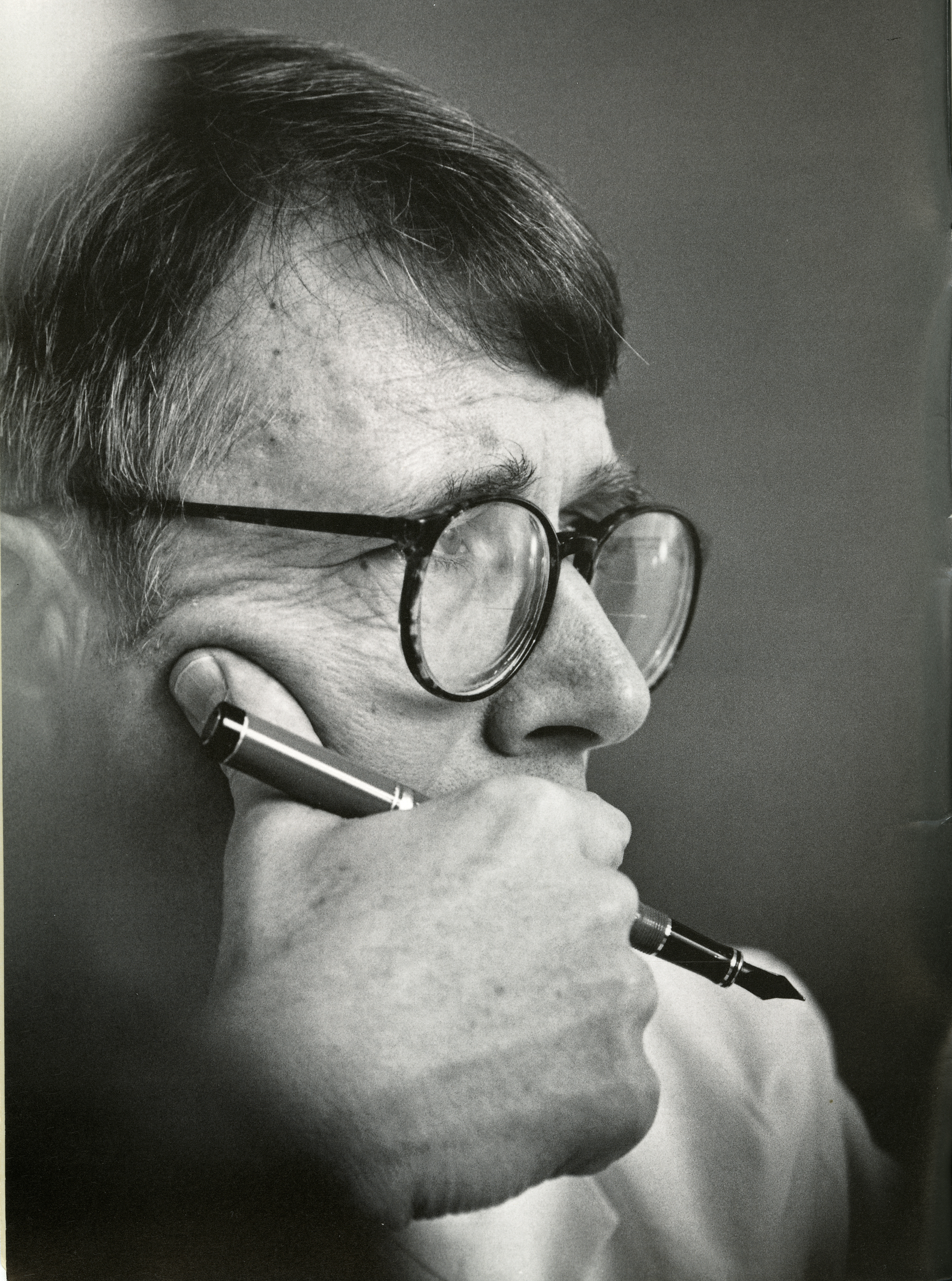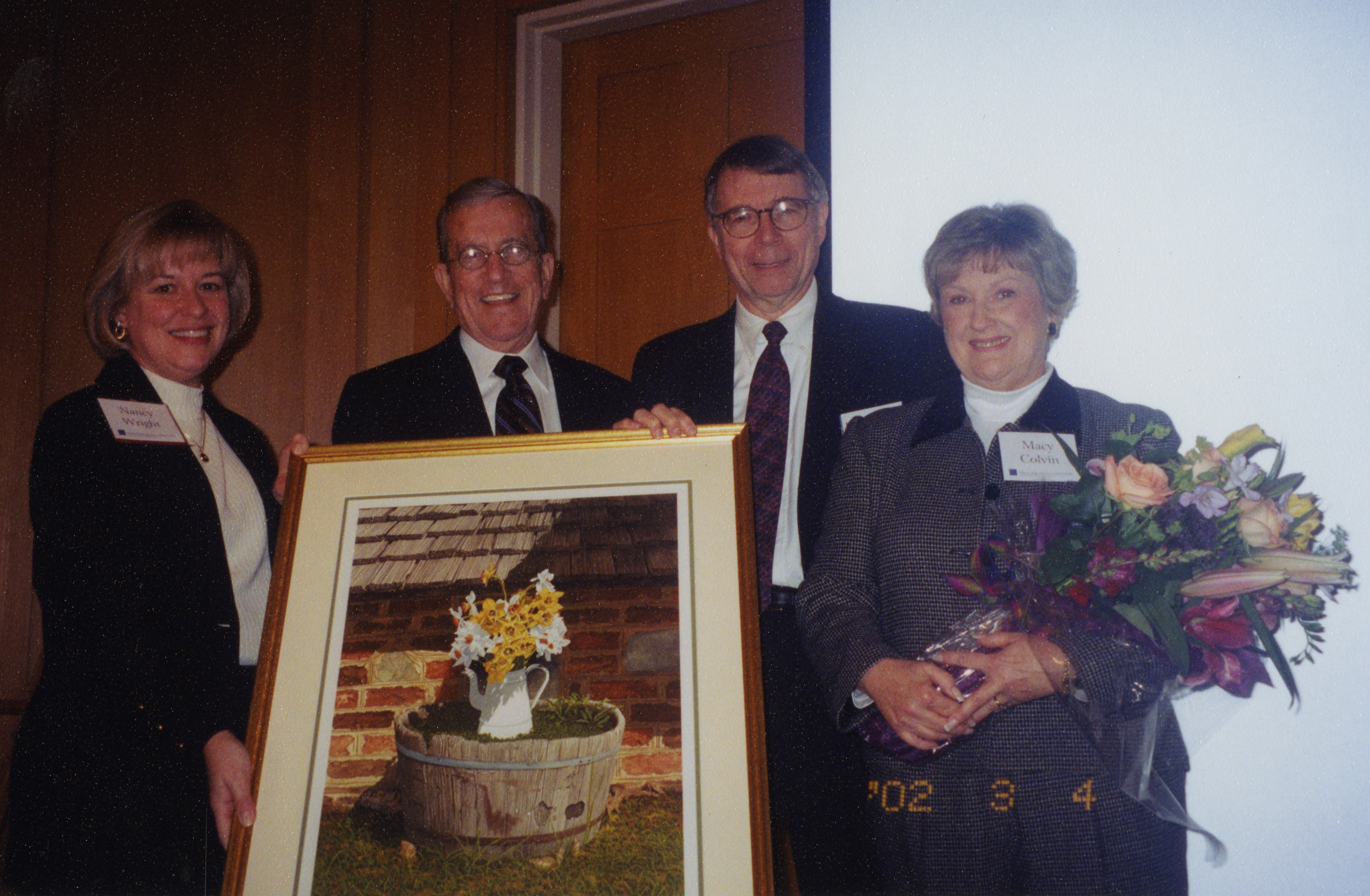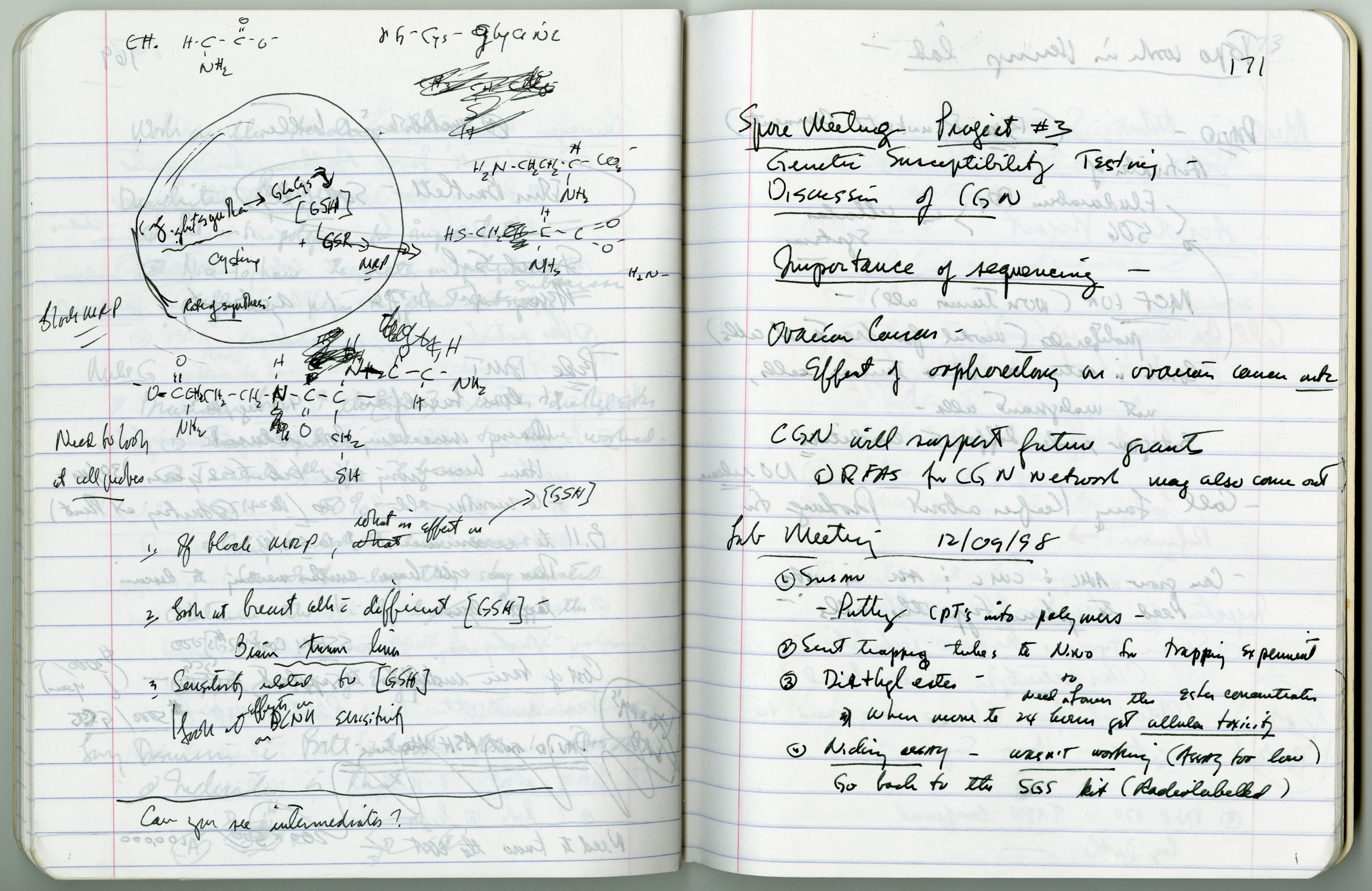This is the first blog post in a three-part series about the life and career of Dr. O. Michael Colvin (1936-2013), a renowned oncologist and educator who served as Director of the Duke Comprehensive Cancer Center from 1995 to 2002. His papers, donated to the Duke University Medical Center Archives, represent his roles as a Johns Hopkins and Duke administrator, researcher, and professor. The purpose of this first blog post is to introduce Colvin to our readers.
The second blog post discusses the impact of the National Cancer Act of 1971 on the Duke Comprehensive Cancer Center and on Colvin’s career.
The third blog post highlights Colvin’s dedication to his patients at the Duke Comprehensive Cancer Center.
 Colvin was born in Princeton, Indiana, on June 15, 1936, to parents Jack G. and Evelyn Colvin. In 1957, he earned a BA in Chemistry from Indiana University with his senior thesis “Human Lipoprotein Lipase.” In 1961, he received an MD from Washington University, St. Louis.
Colvin was born in Princeton, Indiana, on June 15, 1936, to parents Jack G. and Evelyn Colvin. In 1957, he earned a BA in Chemistry from Indiana University with his senior thesis “Human Lipoprotein Lipase.” In 1961, he received an MD from Washington University, St. Louis.
After graduating from medical school, Colvin completed his residency at the Johns Hopkins Hospital in Baltimore, Maryland. He then served a two-year appointment as a clinical associate for the National Cancer Institute before returning to Johns Hopkins University. He served as a fellow in pharmacology (1966-1968); physician (1968-1995); and assistant professor to professor of medicine (1968-1995). Colvin joined the Johns Hopkins Oncology Center in 1975, its founding year, and later served as the Center’s Chief of the Division of Pharmacology and Experimental Therapeutics. He also served as Associate Dean for Research at the Johns Hopkins School of Medicine.
In 1995, Colvin succeeded Dr. Robert C. Bast, Jr. as director of the Duke Comprehensive Cancer Center (DCCC). Two subsequent blog posts will feature his leadership while serving in this position. After stepping down as director of the DCCC in 2002, Colvin became the Duke University School of Medicine’s William Shingleton Professor of Cancer Research. He retired from Duke as director emeritus in 2008. After his death in 2013, the Duke Cancer Institute established the annual O. Michael Colvin Memorial Lecture in Developmental Therapeutics. 
Throughout his career at Johns Hopkins and Duke, Colvin conducted pioneering research into the forms of and cellular resistance to cyclophosphamide and other alkylating agents, which are used in cancer treatment therapies to damage cancer cells. He was among the first to use high doses of cyclophosphamide in treating solid tumors, a practice which is now widely adopted. He worked with Dr. Henry Brem at Johns Hopkins to develop polymers for the treatment of brain tumors. He also collaborated with Drs. Henry Friedman and Darell Bigner, both Duke affiliated, to research the use of alkylating agents on pediatric central nervous system tumors.
Colvin received many honors from Duke, from the field of oncology, and from the wider scientific community. He received a Career Development Award from the National Cancer Institute, providing funding and research support from 1975 to 1980. In 2000, he was nominated and accepted into the Association of American Physicians for his work in stem cell purification. Other honors include membership in Phi Beta Kappa and Alpha Omega Alpha; Recognitions of Contribution from the National Cancer Institute (1966-1996); an Acknowledgement of Service from the American Cancer Society (1998); an Outstanding Leader, Physician and Scientist Appreciation of Service from Duke University (2002); and the R. Wayne Rundles Award for Excellence from Duke University (2003). 
Colvin is survived by his wife Arline Macey (Lockerbie) Colvin. He is also survived by 4 children and 5 grandchildren. In his free time, Colvin enjoyed running, reading, and fly fishing. According to a statement by Colvin at the 1996 Washington University Medical Reunion, he wanted current medical students to “pursue your dreams and don’t worry about the future.”
The O. Michael Colvin Papers contains correspondence, research notes, writings, photographs, awards, and digital files representing Colvin’s personal life and professional work. To view materials from the O. Michael Colvin Papers, contact the Medical Center Archives staff. Stay tuned for future blog posts about Colvin.
This blog post was contributed by Medical Center Archives Intern Emma Eubank.
